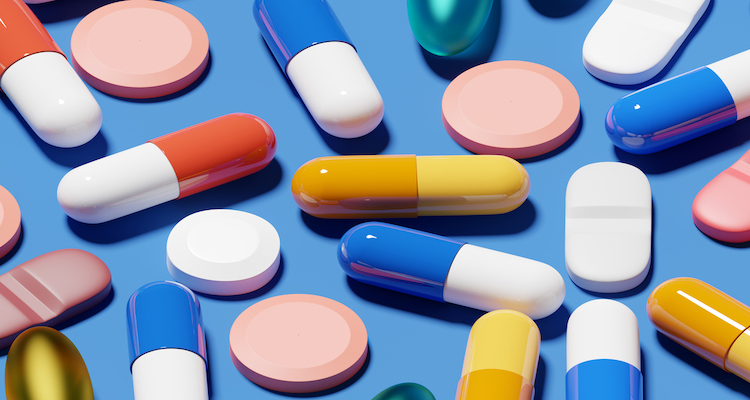Good for What Ails Us? Broad Spectrum Morning-After STI Pill Shows Promise
But will DoxyPEP ever replace safe(r) sex?

The sexual health-related telehealth provider Wisp’s release of their new multiple post-exposure medication, DoxyPEP, has a number of medical experts wondering if it might be signaling a turning point in the prevention and treatment of Sexually Transmitted Infections (STIs).
Dr. Laura Purdy, Wisp’s chief medical officer, explained to Askmen that DoxyPEP is “Similar to the traditional morning-after pill that’s taken to prevent unwanted pregnancy after unprotected sex, DoxyPEP can be taken within 72 hours of unprotected sex to stop the spread of certain sexually transmitted infections.”
Dr. Purdy further notes, “While Doxycycline has been commonly used to treat multiple types of bacterial infections, expanding the use cases for this existing drug is an important step in providing sexual wellness solutions for those who have engaged in sexual activity and are concerned about STI risks.”
Like how PrEP is used as a “morning after pill” in potentially reducing the likelihood of developing HIV from unprotected sex, when taken as prescribed DoxyPEP does the same for syphilis, chlamydia, and gonorrhea.
However, Dr. Purdy cautions that “DoxyPEP doesn’t protect against Mpox, HIV, herpes, or other viral infections” or parasite-based infections like crabs.
In the same article, Avril Clarke, the sexologist and intimacy coordinator at Erika Lust, raises the point that while DoxyPEP may be transformative in aiding in the reduction of STI cases, it’s important for sexually active individuals not to develop a false sense of security; “Barrier methods of contraception, like condoms, were and still are the only way to protect oneself from the transmission of STIs and HIV during sex.”
Not the solution, but maybe part of one?
Clarke also points out that DoxyPEP is not without its side effects, not least of which is its expense—which might place it beyond the financial reach of its target market of male-identified persons who sexually engage with trans women and other men:
“Checking in with a doctor before and after going through the process is crucial. Additionally, depending on your location, it is not always available for free or at a low cost and often causes harsh side effects, including nausea, rash, headaches, and fatigue. The financial, emotional, and physical distress that might come from needing to take PEP should not be overlooked.”
Medications can only do so much
Even though post-exposure preventive treatments like DoxyPEP and PrEP are unable to address every sexually transmitted infection, it might be possible to reduce their social/psychological impact by upping the promotion of safe(r) sex practices to cut down on the number of people who need to take an STI morning after pill.
When interviewed by Johns Hopkins Bloomberg School Of Public Health, Matthew Hamill, MBChB, PhD, and a Medicine and Population, Family and Reproductive Health assistant professor, was asked if he thinks DoxyPEP is a good choice for patients who may have been exposed to STIs: “I do, but I don’t think it’s a panacea. I think that we have to be careful in terms of the advice that we give to patients so that we couch this as one intervention in the suite of interventions that can help people have maximum sexual health.”
Dr Hamill added, “It is important to be honest about the limitations of our knowledge, the limitations in terms of efficacy of the medication, and also to be upfront about some of the possible adverse effects. This is a relatively new endeavor in terms of prevention. There’s a lot we still have to learn.”
That includes ascertaining DoxyPEP’s efficacy for people reporting penetrative vaginal sex. For people with vaginas, insisting on condom use is still the best prevention.
The ambulance down in the valley
Considering the question of how post-exposure drugs like DoxyPEP might play an as-yet unknown part in altering human sexuality, particularly regarding our attitudes towards preventing and treating sexually transmitted infections, the music of John Denver comes to mind.
Specifically, in “The Ambulance Down In The Valley,” where he sings that there’s no reason to take precautions along a treacherous stretch of mountain road because, you guessed it, there’s help waiting at the bottom.
The point I’m trying to make is that human beings often tend to look at technological breakthroughs, particularly when they frequently involve frightening situations like contracting sexually transmitted infections, as if they’re the magic solution we’ve all been waiting for: why take precautions when you can just pop a pill in the morning and be right as rain?
The truth is medications like DoxyPEP are groundbreaking, but they can never replace taking responsibility for you and your partner’s sexual health—as in doing everything possible to ensure no one’s exposed to anything.
In other words, making sex safe(r) and not depending on the ambulance, clinic, or post office down in the valley.
Image Sources: Depositphotos

















